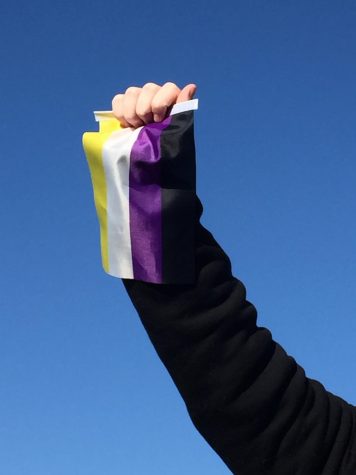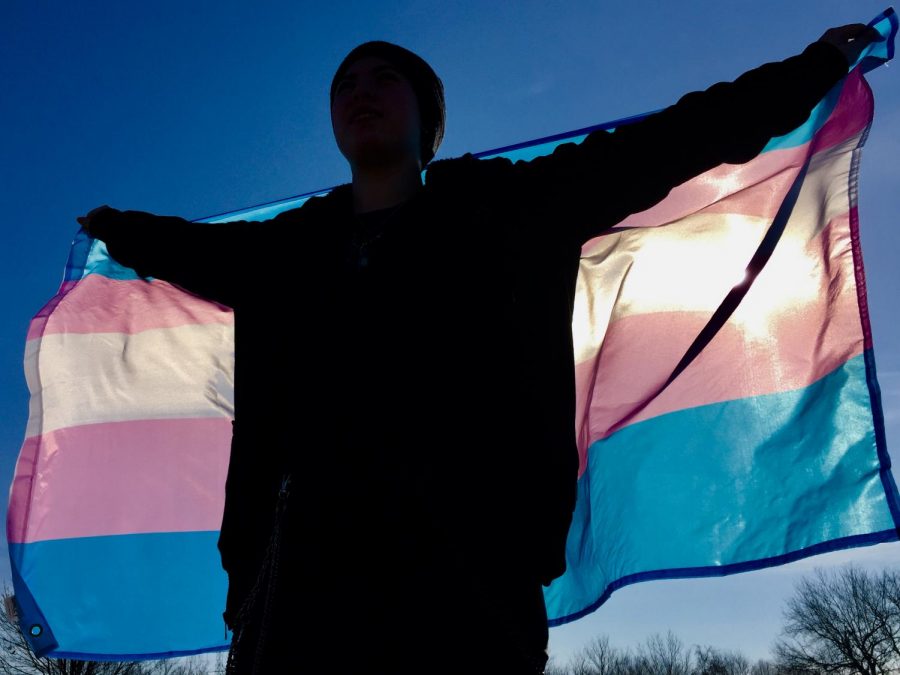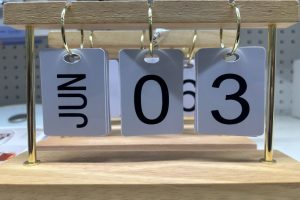Elliot Page inspires transgender youth to be their true selves
Transgender people identify as a gender that does not align with the gender they were assigned at birth.
December 10, 2020
*Two of the interviewees in the article chose to remain anonymous. They will be referred to as T. and K.
Queer celebrities are huge inspirations to young genderqueer people. They serve as role models and represent a large part of the LGBTQ+ community. One of those inspirations is Elliot Page. They posted an announcement on Instagram on Dec. 1 saying that they are transgender and nonbinary, and they use he/him and they/them pronouns.
There are many gender identities within the LGBTQ+ community. Someone who is transgender does not identify with the gender they were assigned at birth, and they most often identify as male or female, but not always. There is also nonbinary, which is when a person identifies with something between the binary, or not with the binary at all. Genderfluid refers to someone who feels that their gender identity fluctuates. People normally use she/her, he/him, they/them, or a combination of those pronouns. There are also neopronouns like ze/zir or xe/xem. Pronouns help someone feel more validated in their gender identity.
With so many factors and unique experiences, young LGBTQ+ members are often left stranded to figure out their gender identity.
“I identify as male, but I am transgender,” junior Matthew Puffer said. “I figured out that I was transgender around fifth grade when I realized I wasn’t like the other girls and resonated more with boys. There was something inside me that was very uncomfortable with the idea of being called she/her. I tried out they/them pronouns for a while, and I realized that didn’t work out, so then I decided to go with he/him pronouns. That finally clicked for me around middle school. I’ve been using he/him pronouns ever since.”
Some people feel tied to labels, while others do not. It is all personal preference.
“[I identify] pretty loosely,” T. said. “I don’t think I have a super specific term that I am really tied to, but I usually go with nonbinary. If I am talking to someone who is more educated on the topic, I might even say agender, but that’s about it.”
Some figure it out at a young age, while others discover their queerness later in life, like in high school, or as an adult such as Page.
“I figured out I was genderfluid right around September of this year,” K. said. “I use the term genderfluid because sometimes I like looking masculine, and sometimes I like looking feminine, sometimes I like looking like neither.”
Being queer comes with its own set of roadblocks. Genderqueer individuals face societal pressures on how to identify and present, gender dysphoria, and difficulty in acceptance.
“Identifying specifically how you feel is difficult because [genderqueer] is such a broad term,” T. said. “Everyone experiences gender differently, so it can be difficult to pinpoint. That is also more difficult when you don’t have a lot of representation. There’s no one you can relate to, so it’s something you have to figure out completely on your own.”
Once someone figured out how they identify, they then have to face the fear of coming out.
“The hardest part of being genderfluid is figuring out how to come out to family members and dealing with people who have different opinions on gender identity that is not strictly male or female orientated,” K. said.
It can be difficult to find acceptance as a young genderqueer person. Coming out frequently gets dismissed as attention-seeking despite it being very real.
“A lot of times when you are younger, you get told ‘oh, it’s a phase’ or ‘it’s because you’re young,’” T. said.
Even after building up the courage to come out to his family, junior Rae Dobes still feels unaccepted at home.
“My family keeps thinking of me as a female,” Dobes said. “Being misgendered is probably the hardest part.”
Unlike Page and other celebrities who come out to virtually the whole world at once, most queer people are able to gradually come out, expanding who they are out to each time.
“Coming out is something that happens in steps,” T. said. “For me, first, it was mainly with close friends and online because online you can block anybody, you can completely avoid interacting with people, you don’t have to see anybody face to face. Close friends are usually accepting, if not queer themselves, so it is a safe space. Whereas with my family, it was not until last December because it is easier to do that with family once you are more secure with your own identity.”
That being said, representation is important because it gives everyone someone to look up to who is like them.
“Seeing somebody who is an adult, and for the most part, has their life together and knows what he wants, and seeing that they still identify in a similar way that you do, it’s pretty neat,” T. said. “It definitely helps fight against the ‘it’s just a phase,’ and you don’t usually get to see queer people, even adults. Seeing somebody lead a pretty fulfilling life and being themselves even when they are older is inspiring.”

Page’s fans are there to support him, and his publicity over his gender identity has shown how queer people are being more accepted in today’s world.
“Honestly, [Elliot Page coming out] is super helpful,” K. said. “I am a huge fan of ‘The Umbrella Academy.’ I have been a huge nerd about it, so seeing representation in TV shows and the actors themselves and how people receive it, it is really cool to see that we are getting more of a place in the world.”
Celebrities coming out helps young genderqueer people feel validated in their feelings and identity.
“I think [Elliot Page coming out] will help because [LGBTQ+ youth] might be able to be a little more open with themselves and think ‘okay, maybe this isn’t bad, maybe I’m not wrong for being this,’” Dobes said.
Page not only serves as validation for young genderqueer people, but they also are a positive representation of the LGBTQ+ community in media, which is not very common.
“[His coming out post] definitely tells especially younger LGBTQ+ youth that it is okay to be like this,” Puffer said. “It is okay to feel these things and think this way. I never had that role model when I was younger, so now, when we are in a new and accepting stage of life, seeing celebrities be who they truly are is beneficial because we don’t see a lot of positive representation in the media.”
Gender and gender identity is a large encompassing topic. Page especially teaches the world that it is important to be accepting of everyone, no matter their identity.
“Always be open-minded towards trans people and LGBTQ+ people because not everyone shares the same experiences, and it is good to always have an open mind and be accepting and loving of everyone,” Puffer said. “At the end of the day, they are who they say they are and you have no say in that.”









